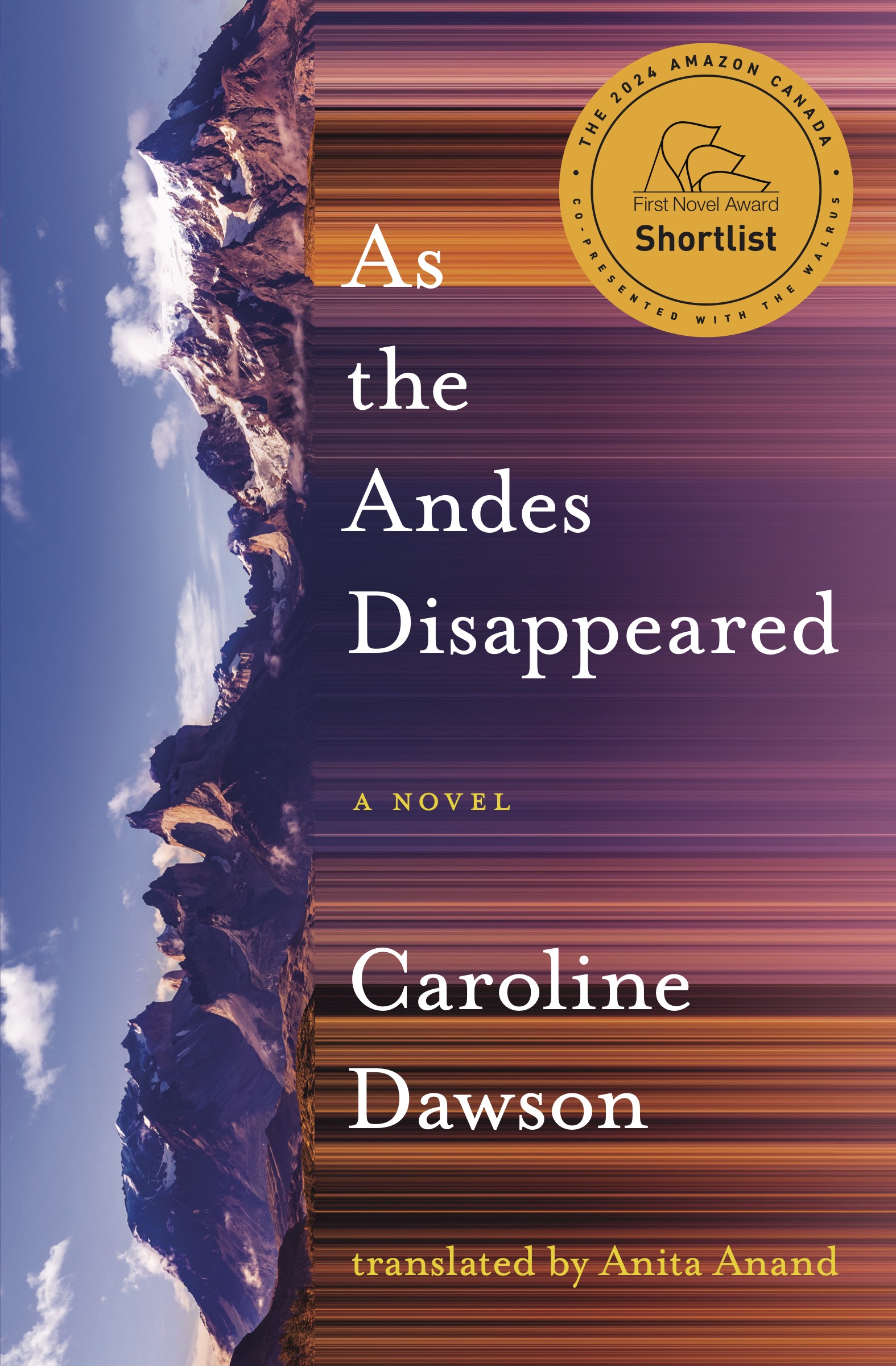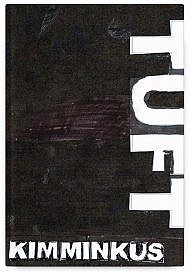Caroline is seven years old when her family flees Pinochet’s regime, leaving Chile for Montreal on Christmas Eve, 1986. She fears Santa won’t find them on the plane but wakes to find a new doll at her side, her mother preserving the holiday even amidst persecution and turmoil. This symbol of care is repeated throughout their relocation as her parents work tirelessly to provide the family with a new vision of the future.
Once in Canada, Caroline accompanies her parents as they clean banks at night. She experiences racist microaggressions at school, discovers Québécois popular culture, and explores her love of reading and writing in French. Slowly, the Andean peaks disappear from Caroline’s drawings and a fracture between her parents’ identity and her own begins to grow.
This expansive coming-of-age autobiographical novel probes the plurality of identity, elucidating the interwoven complexities of immigrating to a new country. As the Andes Disappeared tenderly reflects the journey of millions and is a beautiful ode to family commitment and the importance of home—however layered that may be.
Praise for As the Andes Disappeared
“In As the Andes Disappeared, Caroline Dawson achieves a rare feat—the expression of exile as experienced by a child. Poignantly, vividly, through Anita Anand’s perfect translation of Dawson’s elegant and easy-flowing prose, we are drawn into the world of a girl plucked out of Chile and its overwhelming cordillera, and dropped into the emotional, physical, and linguistic space of 1980s Québec. Memory, whether inherited, remembered, lived, or made anew, is at the core of this utterly human and beautifully written novel. An essential addition to Canadian culture.”—Beatriz Hausner, author of She Who Lies Above and Beloved Revolutionary Sweetheart
“This beautiful, poetic book vividly captures an immigrant experience that drew me in from the very first sentence to the very last. As an immigrant myself, I saw my own experiences mirrored similarly. I’m so grateful to have read this and I hope you will, too.” —Hasan Namir, author of Umbilical Cord and War/Torn
Press Coverage
Most Anticipated: Our 2023 Fall Fiction Preview —49th Shelf
2023 Fall Preview: Fiction and Short Fiction —Quill & Quire
“The power of this largely autobiographical novel lies in its refusal to let anger give rise to gratitude. Nor is gratitude permitted to soften the rage of knowing that the comfort of the rich continues to be built with the egregiously paid labour of those who cannot push back.” —Le Devoir
“Chilean-born, Montreal-based author and sociology teacher Caroline Dawson digs up and grieves such disowned fragments of self in her gripping autobiographical novel, skillfully translated by Anita Anand from the original French Là où je me terre (2020). In this powerful coming-of-age story, a fictionalized ‘Caroline’ shares memories of her family’s immigration, raising issues of social injustice and racism while reviewing her own cultural integration with candour, humour, and depth.”—Kimberly Bourgeois, Montreal Review of Books
“What begins as an intimate, intergenerational portrait of a family taking refuge is ultimately a story of one woman’s politicization, self-discovery, and literary beginnings. Sitting somewhere between a memoir, a novel, and a love letter to decades of women who came before her, As the Andes Disappeared is a bold, beautiful, and tender account of becoming a writer.” —Quill & Quire
“Dawson and Anand are meticulous about translating Chilean Spanish, Montreal French, and era references throughout, providing the deeper context to the time Dawson was going through these experiences. What this creates is a rich record of a refugee experience, and the choices that reverberate through time, leading to unintended consequences.” —Alison Manley, The Miramichi Reader
About the Author
Caroline Dawson was born in Chile in 1979 and immigrated to Quebec with her family when she was seven. As the Andes Disappeared, originally published in French as Là où je me terre (2020), was a finalist for various prizes, including the Prix des libraires du Quebec and Radio Canada’s Combat national des livres, and won the Prix littéraire des Collégiens and the Prix AIEQ. She is also the author of the poetry collection, Ce qui est tu (2023). Dawson teaches sociology and co-organizes the Montreal Youth Literature Festival. She lives in Montreal.
Anita Anand is an author, translator and language teacher from Montreal. She is the author of Swing in the House and Other Stories, which won the 2015 Concordia University First Book Prize and was shortlisted for the 2016 Relit Award for Fiction and the Montreal Literary Diversity Prize. Her novel, A Convergence of Solitudes, was nominated for the 2022 Paragraphe Hugh MacLennan Prize for Fiction and the 2023 Forest of Reading Evergreen Award. Her previous translations include Nirliit by Juliana Léveillé-Trudel, which was nominated for the 2018 John Glassco Prize, and Lightness by Fanie Demeule.






